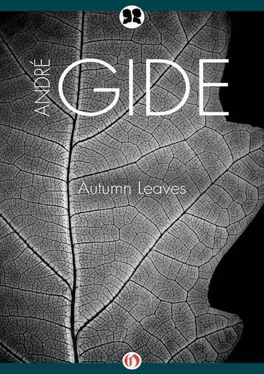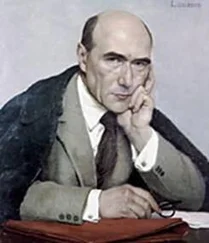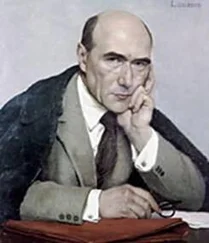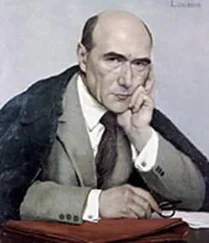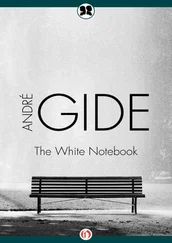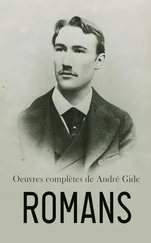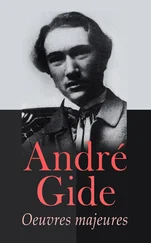Le pauvre pion doux, si sale, m’a dit: j’ai
Bien mal aux yeux et le bras droit paralysé …
Il économise pour se faire soigner.… 1
Anyone can try new harmonies; the special property of Jammes was to bring his novelty to perfection immediately. For that matter, this novelty was not artificially obtained; it was so as not to put his voice out of tune that he put the instrument out of tune; that was all that counted with him: that his voice should be true. That of Francis Jammes did not recall any other; as genuine as the human voice can be. Now we are accustomed to it, it does not surprise us any more; when the first poems of the man who called himself a faun appeared, that voice at first seemed discord to the ears of the cultivated city folk; but soon, the exact pitch of that voice triumphed and, alongside of it, it was the voice of his contemporaries that appeared artificial, borrowed.
Jammes did not have to search. The first letters I received from him show him, from 1893, still young, already fully conscious of his savor, his virility, his gifts, with all his charming faults, his resolute obtuseness, his pride and fantasy, his irreplaceable qualities. I thought that, more than my commentaries, some of his letters from years long gone by, would deservedly interest the readers of the N. R. F. in spite of the oddities of the dithyrambs. I am adding to them some personal recollections, written a few years ago. I give them without adding anything. I should like to be able to make felt, through certain reserves, the affection that bound us and which holds such a great place in my life.
REDISCOVERED PAGES
I had already been in correspondence with him for a long time, when he came to join us at Biskra where we, my wife and I, were completing our wedding trip. He let himself be brought there by a mutual friend, Eugène Rouart, eager to introduce us to each other and to make him see the country; for he had never yet left Orthez. In our letters, we used the tu form; but when I saw getting out of the train that sprightly little being, bearded, with a ringing voice and a gimlet eye, I found him so little like what I had imagined him to be, that the tu at first gave place to vous; which seemed to have such an effect on him that the tu was taken up again.
He had taken me by the arm, very affectionately, as soon as we had found ourselves alone, on the terrace of the hotel, but I was not a little surprised by the protecting and even contemptuous tone that he assumed on speaking to me of Eugène Rouart, for whom I had much more affection than he seemed to think, and with whom I was more intimate than I could ever be with Jammes. Convinced that, no more than he, could I doubt for an instant the immense superiority of both of us over our mutual friend, he gave me to understand at once he feared that superiority would soon get our poor friend into a most painful situation.
“We should,” he said to me, “watch our remarks carefully, and say nothing too subtle in front of him, so as not to mortify him.”
The attention was, most assuredly, delicate, but showed such a lack of understanding of others, that I was embarrassed, to such a degree I did not know what to say to him. As apparent as that great fault was, yet one did not suffer too much because of it, for Jammes was a charming fellow and, at that time, did not pontificate at all. His good spirits were extraordinary. It was one continuous outburst of anecdotes about the bourgeoisie of Pau and Orthez. He narrated delightfully and with such art that one never tired of listening to him. He had parading before you a surprising quantity of puppets with preposterous gestures and droll comments, that appeared to him (and that he showed) all the more extravagant since he saw, in those he painted, only the outside.
When, the next summer, he came to pass some time with us at La Roque, my old Aunt Demarest, who did not unbend easily, was sometimes ill with laughter. But first I come back to, Biskra; in addition to his talent as a story-teller, Jammes had the gift of analogies, a gift that he often confused with poetic genius. His nerves always tingling seemed like the cords of a lute that would reverberate at the approach of every harmony; he amused himself with it; he asked, pointing to an object, when we were out for a walk:
“What does that recall to you? What does that make you think of?”—and amused us by the most unexpected analogies, most surprisingly exact, but of which none of the rest of us would have thought.
We lingered only a few more days at Biskra, then left for Touggourt, where we were to separate, for, aided by fatigue, the misunderstanding between Jammes and Rouart soon became intolerable. Jammes left us there. He left all alone, and his departure was pathetic. He was to return at once to Orthez and was persuaded he was decidedly not made to leave home. However, he readily consented to come to La Roque, and I have very pleasant memories of his stay with us.
Ghéon was our guest when Jammes came to join us. To tease him a little about his knowledge of natural history, that he liked to advance, and which did not appear to me very exact, we had agreed, Ghéon and I, to call the wasps “scorpion-fish.” There was a great abundance of them at that season: they entered by the open window of the dining-room, where, as soon as Jammes was seated, Ghéon exclaimed:
“Another scorpion-fish!”
Jammes, who saw nothing more than a wasp, surprised and disturbed, confessed his ignorance. “Scorpion-fish and wasp! Can they be confused? There is no relationship between them!” But soon Jammes. joined our game, to find that the name scorpion-fish indeed fitted them very much better; then, starting off, he proposed rebaptising many things, and finding for each object a name unexpectedly adequate. Thus we framed an extraordinary lexicon that entertained us all through his stay; eye-glasses became cavalry; a watch-key, a time-jack; some rather mediocre bordeau that my wife was serving at table was called outsider; but a rather remarkable burgundy was baptised by Jammes “nipon.” For this little game, the names found by him always seemed to us the best.
Jammes showed himself extremely attentive to my Aunt Demarest; rather flattered, moreover, I think, by the success he had with her; entertaining himself by making her laugh and sometimes shocking her a little.
“Madame Demarest, what does this remind you of?” he asked her at table, pointing out with his finger a peach, in a fruit dish, that a slug had spoiled considerably; it was a sort of peculiar cavity, yellowish and very ugly looking. My aunt fixed her “cavalry” on her nose, leaned over, examined a little, then declared simply that it didn’t remind her of anything. So Jammes, in his ringing voice, declared:
“The foramen of the priest’s ear.”
“Ah, Monsieur Jammes …”
And the servant who was serving us, bent double, stifled her laughter in a napkin.
After supper we organized a little game of squails around the big table in the reception room. They were little quoits of black and white box-wood that had to be thrown with a flip as near as possible to a metal jack, standing in the middle of the table, dislocating the opponents as much as possible, and playing the game with partners. Jammes called my aunt “the Talleyrand of the blacks,” which flattered her a great deal, for she played skillfully.
My aunt did not get up early, but when we took a walk in front of the house after breakfast, she could sometimes be seen at her bedroom window. She was a little near-sighted, and didn’t even see the deep bow Ghéon made to her. So Jammes said to him:
“Useless, dear friend.… Madame Demarest doesn’t recognize anybody before ten o’clock in the morning.”
Читать дальше
